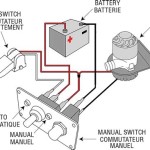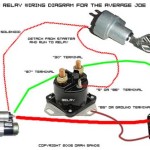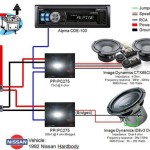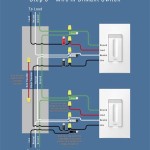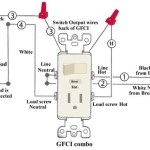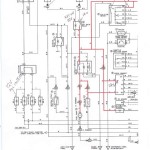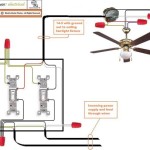An automotive wiring harness connector is a device employed in automotive electrical systems to provide a stable and secure connection between multiple wire harnesses or other electrical components. For instance, multi-pin connectors are widely utilized in modern vehicles to connect the chassis harness to the body harness, facilitating the transmission of power and signals.
Wiring harness connectors play a crucial role in safeguarding the reliability and functionality of automotive electrical systems. They offer secure and robust connections, ensuring uninterrupted electrical flow and preventing short circuits or power outages. One pivotal historical development in this domain was the advent of waterproof connectors, which revolutionized vehicle electrical systems by protecting them from harsh environmental conditions.
This article will delve deeper into the intricacies of automotive wiring harness connectors, exploring their types, design parameters, testing methodologies, and industry standards. We will shed light on the latest innovations and best practices associated with these essential components, providing a comprehensive understanding of their vital role in modern automotive engineering.
Automotive Wiring Harness Connectors, as their name suggests, are crucial components of a vehicle’s electrical system, responsible for establishing secure and reliable connections between wire harnesses and electrical devices. These connectors play a critical role in ensuring the optimal functioning of various automotive systems, from engine management to infotainment.
- Types: Categorized based on design, material, and application, such as circular, rectangular, and sealed connectors.
- Materials: Typically made of durable materials like plastic, metal, and composites, ensuring longevity and resilience in harsh environments.
- Durability: Engineered to withstand vibrations, temperature fluctuations, and exposure to fluids, guaranteeing reliable performance.
- Safety: Designed with safety features like locking mechanisms, strain relief, and insulation, preventing accidental disconnections and electrical hazards.
- Standardization: Adhering to industry standards ensures compatibility and interchangeability, facilitating maintenance and repairs.
- Testing: Subject to rigorous testing protocols to verify their electrical, mechanical, and environmental performance.
- Connectivity: Facilitating the connection of electrical signals and power between different modules, sensors, and actuators within the vehicle.
- Customization: Can be tailored to specific vehicle models and requirements, enabling optimized performance and integration.
Types
The diverse types of automotive wiring harness connectors, categorized based on design, material, and application, play a critical role in determining the functionality, reliability, and durability of the overall electrical system. Circular connectors, with their robust design and ability to withstand harsh environments, are often used for high-power applications and connections between major modules. Rectangular connectors, known for their compact size and versatility, are commonly employed in space-constrained areas or for interfacing with printed circuit boards. Sealed connectors, designed to protect against moisture and contaminants, are essential for applications exposed to extreme conditions, such as engine compartments or outdoor environments.
The selection of the appropriate connector type is crucial for ensuring optimal performance and longevity in specific automotive applications. For instance, in high-vibration environments, circular connectors with locking mechanisms provide a secure and reliable connection, preventing interruptions in critical systems. Rectangular connectors, with their modular design, allow for easy customization and expansion, making them suitable for applications requiring flexibility and adaptability. Sealed connectors, with their ability to withstand harsh conditions, are indispensable for protecting sensitive electrical components from moisture, dust, and other environmental factors.
Understanding the connection between the types of automotive wiring harness connectors and their specific applications empowers engineers and technicians to make informed decisions during the design and maintenance of automotive electrical systems. By carefully considering factors such as environmental conditions, space constraints, and performance requirements, appropriate connector types can be selected, ensuring the reliability, efficiency, and durability of the overall system.
Materials
The materials used in the construction of automotive wiring harness connectors directly impact their performance and durability in demanding automotive environments. Durable materials like plastic, metal, and composites are employed to withstand the rigors of vibration, temperature fluctuations, exposure to fluids, and other harsh conditions encountered in vehicles.
Plastic materials, such as nylon and polycarbonate, are widely used for connector housings and insulators due to their lightweight, affordability, and resistance to corrosion and chemicals. Metal materials, such as copper alloys and stainless steel, are employed for terminals and contacts, providing excellent electrical conductivity and mechanical strength. Composites, combining the properties of both plastic and metal, offer a balance of durability, weight reduction, and cost-effectiveness.
The choice of materials for automotive wiring harness connectors is critical for ensuring reliable electrical connections and preventing premature failure. For instance, in high-temperature environments such as engine compartments, connectors made of heat-resistant plastics and metals are essential to maintain their integrity and prevent short circuits. Similarly, in applications exposed to moisture and contaminants, sealed connectors with waterproof and dustproof materials are crucial for protecting sensitive electrical components.
By understanding the relationship between materials and the performance of automotive wiring harness connectors, engineers and technicians can make informed decisions in selecting the appropriate connectors for specific applications. This ensures that the electrical system operates reliably and efficiently throughout the vehicle’s lifespan, even in challenging environmental conditions.
Durability
Durability is a paramount aspect of automotive wiring harness connectors, as they are subjected to a multitude of environmental stressors that can impair their performance and reliability. Exposure to vibrations, extreme temperatures, and fluids is commonplace in automotive applications, and connectors must be engineered to withstand these harsh conditions to ensure the proper functioning of the electrical system.
The durable construction of wiring harness connectors is achieved through meticulous material selection and robust design. The use of robust materials, such as high-quality plastics, metals, and composites, provides resistance to wear and tear, corrosion, and chemicals. Additionally, connectors are designed with features like shock-absorbing mechanisms, strain relief, and sealing to mitigate the effects of vibrations, temperature fluctuations, and moisture ingress.
Real-life examples of durability in automotive wiring harness connectors abound. In engine compartments, connectors must endure extreme heat and exposure to fluids, while in underbody applications, they must withstand road debris, moisture, and salt. By meeting these durability requirements, connectors ensure the reliable transmission of electrical signals and power throughout the vehicle’s lifespan.
The practical applications of understanding the durability of automotive wiring harness connectors are far-reaching. Engineers and technicians can make informed decisions in selecting connectors that are appropriate for specific environmental conditions and performance demands. This knowledge contributes to the design and maintenance of reliable and efficient automotive electrical systems, enhancing overall vehicle safety and performance.
Safety
Within the realm of automotive wiring harness connectors, safety takes paramount importance to prevent malfunctions, electrical hazards, and ensure reliable performance. Several key safety features are meticulously engineered into these connectors to mitigate risks and enhance overall system integrity.
-
Locking Mechanisms
Locking mechanisms, such as latches or bayonet couplings, provide a secure and vibration-resistant connection between connectors. They prevent accidental disconnections due to external forces, ensuring uninterrupted electrical flow and system functionality.
-
Strain Relief
Strain relief features, such as flexible boots or grommets, protect wires from excessive bending or pulling at the connection point. This prevents damage to the conductors, reduces the risk of short circuits, and extends the lifespan of the wiring harness.
-
Insulation
High-quality insulation materials, such as rubber or plastic, surround the electrical contacts and terminals to prevent current leakage and electrical shocks. Proper insulation ensures safe handling and operation, reducing the risk of electrical hazards.
-
Polarized Connectors
Polarized connectors have a unique design that allows them to be connected in only one correct orientation. This prevents incorrect mating and potential short circuits, enhancing safety and simplifying maintenance.
These safety features collectively contribute to the robust and reliable operation of automotive wiring harness connectors. By incorporating these design elements, manufacturers prioritize the prevention of electrical hazards, ensure secure connections, and enhance the overall safety and efficiency of automotive electrical systems.
Standardization
Within the realm of automotive wiring harness connectors, standardization plays a pivotal role in ensuring compatibility, interchangeability, simplified maintenance, and efficient repairs. Adherence to industry standards establishes a common language and framework for connector design, manufacturing, and testing, fostering seamless integration and reliable performance across different automotive systems and components.
-
Universal Compatibility
Standardization ensures that connectors from different manufacturers can seamlessly mate and function together, regardless of brand or model. This interchangeability simplifies the replacement of damaged or faulty connectors, reducing downtime and maintenance costs.
-
Simplified Maintenance
Standardized connectors streamline maintenance procedures by eliminating the need for specialized tools or training. Technicians can easily identify and replace connectors without extensive knowledge of specific manufacturer designs, reducing the risk of errors and ensuring consistent performance.
-
Reduced Inventory Costs
Standardization allows manufacturers to rationalize their inventory by stocking a smaller range of connectors that are compatible with multiple applications. This reduces storage space requirements and lowers overall inventory costs.
-
Enhanced Safety
Adherence to industry standards ensures that connectors meet rigorous safety requirements. Standardized testing protocols and performance criteria help to prevent electrical hazards, short circuits, and other potential safety concerns.
In summary, standardization is the cornerstone of efficient and reliable automotive wiring harness connectors. It promotes compatibility, simplifies maintenance, reduces costs, and enhances safety, contributing to the overall performance and longevity of automotive electrical systems.
Testing
Within the realm of automotive wiring harness connectors, rigorous testing protocols play a critical role in ensuring their reliability and performance. These tests evaluate various aspects of the connectors, from their electrical characteristics to their ability to withstand harsh environmental conditions. By adhering to stringent testing standards, manufacturers can guarantee the quality, safety, and longevity of their products.
-
Electrical Testing
Electrical testing verifies the electrical properties of the connectors, such as their contact resistance, insulation resistance, and voltage withstand capability. These tests ensure that the connectors can transmit electrical signals efficiently and safely, preventing short circuits and other electrical failures.
-
Mechanical Testing
Mechanical testing assesses the physical integrity of the connectors under various conditions, such as vibration, shock, and pull-out force. These tests ensure that the connectors can withstand the rigors of automotive environments, preventing accidental disconnections and maintaining reliable electrical connections.
-
Environmental Testing
Environmental testing exposes the connectors to extreme temperatures, humidity, dust, and other environmental factors. These tests ensure that the connectors can operate reliably in diverse climates and conditions, preventing corrosion, degradation, and premature failure.
-
Compliance Testing
Compliance testing verifies that the connectors meet specific industry standards and regulations. These tests ensure that the connectors adhere to established performance and safety criteria, providing confidence in their quality and reliability.
In summary, rigorous testing protocols are essential for ensuring the reliability, performance, and safety of automotive wiring harness connectors. By subjecting connectors to a comprehensive battery of electrical, mechanical, environmental, and compliance tests, manufacturers can guarantee that their products meet the stringent demands of the automotive industry and provide years of trouble-free service.
Connectivity
Within the intricate network of an automotive electrical system, connectivity plays a pivotal role in ensuring the seamless transmission of electrical signals and power throughout the vehicle. Automotive wiring harness connectors serve as the essential enablers of this connectivity, providing secure and reliable connections between different modules, sensors, and actuators.
These connectors are meticulously designed to facilitate the flow of electrical signals, allowing various components to communicate and exchange data. Without these connectors, the electrical system would be fragmented and unable to function effectively. For instance, in modern vehicles equipped with advanced driver-assistance systems (ADAS), reliable connectivity is crucial for coordinating data between sensors, control units, and actuators to ensure precise and timely responses. Automotive wiring harness connectors are the backbone of this connectivity, ensuring that critical information is transmitted without interruption or distortion.
Moreover, automotive wiring harness connectors play a vital role in distributing electrical power throughout the vehicle. They provide a safe and efficient pathway for current to flow from the battery to various electrical components, powering everything from headlights to infotainment systems. By ensuring a reliable and stable power supply, these connectors contribute to the overall performance and functionality of the vehicle.
Understanding the connection between connectivity and automotive wiring harness connectors is essential for engineers, technicians, and anyone involved in the design, maintenance, or repair of automotive electrical systems. It empowers them to make informed decisions in selecting the appropriate connectors for specific applications, ensuring optimal performance, reliability, and safety. Furthermore, a thorough understanding of this relationship contributes to the development of innovative and efficient automotive electrical systems, shaping the future of vehicle technology.
Customization
In the realm of automotive engineering, customization plays a pivotal role in tailoring automotive wiring harness connectors to the specific needs of different vehicle models and requirements. This customization enables optimized performance and seamless integration, ensuring that electrical systems operate at their peak efficiency and reliability.
Customization begins with understanding the unique electrical demands of each vehicle model. Factors such as engine size, accessory configurations, and safety features influence the design and specifications of the wiring harness connectors. By tailoring the connectors to these specific requirements, engineers can optimize the flow of electrical signals and power throughout the vehicle’s electrical system.
Real-life examples of customization abound in the automotive industry. For instance, high-performance sports cars often require wiring harness connectors capable of handling higher electrical loads and temperatures. These connectors are designed with specialized materials and construction techniques to ensure reliable operation under demanding conditions. Conversely, electric vehicles necessitate connectors that can accommodate high-voltage electrical systems, necessitating unique insulation and safety features.
The practical applications of understanding the connection between customization and automotive wiring harness connectors are far-reaching. It empowers engineers to design electrical systems that are tailored to the specific performance and integration requirements of each vehicle model. This customization enhances overall vehicle performance, safety, and reliability. Moreover, it facilitates the integration of advanced technologies, such as autonomous driving systems and connected car features, which rely on robust and optimized electrical connectivity.
In summary, customization is an essential aspect of automotive wiring harness connectors, enabling engineers to tailor these critical components to the unique needs of different vehicle models and requirements. This customization optimizes performance, ensures seamless integration, and paves the way for the development of innovative and efficient automotive electrical systems.










Related Posts


